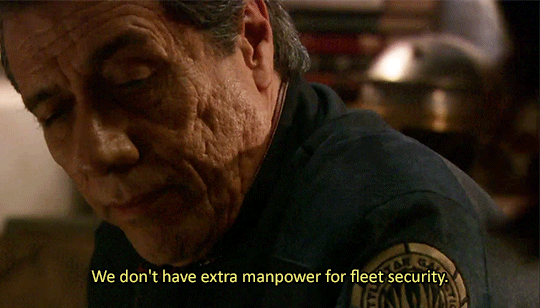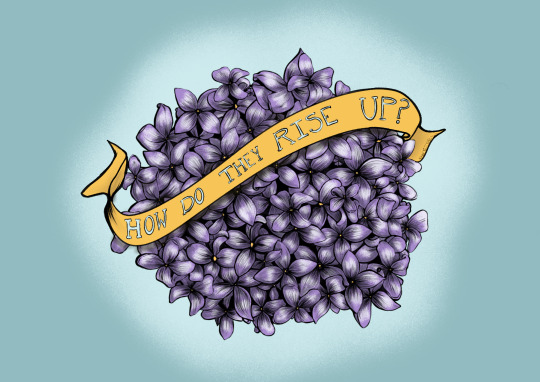Dipping a toe in the social media stream. I work with digital models and photo editing to create my modest pieces. This is where I'll post some original artwork and collect entries on books, science, sequential art, and other inspirations.
Last active 60 minutes ago
Don't wanna be here? Send us removal request.
Text
How it feels working a 9 to 5 and having too many WIPs of varying forms and genres alongside unrealistic expectations for myself as a writer yayyy xox

4K notes
·
View notes
Text
Tips for Non-Artists on Writing Your First Comic, part 1.
Learning to write prose is tough, and it can take years of struggle to grasp the basics. You have to understand construction, character, theme, pacing, the effects of word choice, the specifics of your subject and so much more. Learning to write a collaborative form like comics just adds new troubles and traps as you run into the difficulties inherent in the medium, or specific to the people you're working with.
I've been the first collaborator for a number of writers on their first comic, and it's gone pretty well. (I'll brag here: One project got an Eisner Award nomination, another got four Einser noms, and another made it into a Year's Best anthology and helped the writer land a movie deal.) And I've also watched as artists I know worked with first-time writers on collaborations that didn't turn out too well. So I thought I'd share some observations and suggestions that might be useful to writers new to the medium. I've got ten of these tips. Here are the first three:
1. Read a bunch of comics.
This is primary. You're telling a story in a complicated medium with its own rules, rhythms, and quirks. You should have a sense for what other people have done with it. Read triumphs, near-successes and outright failures. Read well beyond the genre you intend to write. There are valuable lessons everywhere. (I've noted before that one of the biggest influences on an adult crime comic I drew was John Stanley's Little Lulu.)
You can find plenty of best-of and must-read lists online. Librarians and comic shop owners will have good suggestions, too.
Read analytically. Look at what works and what doesn't and try to take the successes apart to see how they function. Like this.
2. Ask yourself: Why is this story a comic?
There are so many writers with an unsold screenplay who have decided that they could just "turn it into a comic." They're not aware of the contempt they're communicating for both their own work and for the medium they expect to work in. It's obvious when someone is treating a comic as a movie pitch, or trying to shoehorn filmic action and dialogue into panels. Respect for a medium means building your story around things the medium can do well.
3. If you aren't working with an established publisher, finding an artist will be tough.
The most common question I hear from first time writers is "How do I find an artist?" One answer is money. If you can pay a competitive rate, you can always hire a skilled artist to be your collaborator. This isn't cheap. If you've established yourself in some other medium, your clout from that can help you find someone who wants to work with you. If you don't have money, or a rep from outside comics, you'll need to network like crazy, in person and online, using every means available to make connections with artists, or people who could introduce you to artists. It will be slow and difficult.
Here's Part 2.
And Part 3.
371 notes
·
View notes
Text
“She knew her boss. He thought war was simply another crime, like murder. He didn’t much like people with titles, and regarded being a duke as a job description rather than a lever to greatness. He had an odd sense of humor. And he had a sense for what she thought of as harbingers, those little straws in the wind that said there was a storm coming.”
Monstrous Regiment Terry Pratchett
88 notes
·
View notes
Text

"To me there is something fine in the American theory that a private citizen can be chosen by the people to occupy a position as great as that of the mightiest monarch, and to exercise a power which may for the time being surpass that of Czar, Kaiser, or Pope, and that then, after having filled this position, the man shall leave it as an unpensioned private citizen, who goes back into the ranks of his fellow citizens with entire self-respect, claiming nothing save what on his own individual merits he is entitled to receive.
But it is not in the least fine, it is vulgar and foolish, for the President or ex-President to make believe, and, of all things in the world, to feel pleased if other people make believe, that he is a kind of second-rate or imitation king...The effort to combine incompatibles merely makes a man look foolish. The positions of President and King are totally different in kind and degree, and it is silly, and worse than silly, to forget this. It is not of much consequence whether other people accept the American theory of the Presidency; but it is of very much consequence that the American people, including especially any American who has held the office, shall accept the theory and live up to it."
-- Former President Theodore Roosevelt, letter to G.O. Trevelyan, October 1, 1911.
228 notes
·
View notes
Text
“Not the people, the nation,” said Vimes. “Borogravia looks off its head to me, from what I’ve read. I expect the people just do the best they can and get on with raising their kids, which, I might say, I’d rather be doing right now, too. Look, you know what I mean. You take a bunch of people who don’t seem any different from you and me, but when you add them all together you get this sort of huge raving maniac with national borders and an anthem.”
Monstrous Regiment Terry Pratchett
24 notes
·
View notes
Text

This week on the Incidental Comics newsletter, a look inside my top secret sketchbook practice:
454 notes
·
View notes
Photo










Battlestar Galactica - 1x02: “Water”
1K notes
·
View notes
Text

Genuinely laughed out loud when I read this… in the pin-drop silent library where I work…
3K notes
·
View notes
Text
”you can just make an oc” you dont understand anything. the character needs to mutate naturally until unrecognizable. like all evolutionary processes it takes time. you can’t force it or it doesn’t take. you must endure weird ooc thematically discordant versions of a guy until they bud off into beautiful new life. have patience
34K notes
·
View notes
Photo

2025 May 24
Deimos Before Sunrise Image Credit: NASA, JPL-Caltech
Explanation: Deimos takes 30 hours and 18 minutes to complete one orbit around the Red Planet. That’s a little more than one Martian day or sol which is about 24 hours and 40 minutes long, so Deimos drifts westward across the Martian sky. About 15 kilometers across at its widest, the smallest of Mars’ two moons is bright though. In fact Deimos is the brightest celestial object in this Martian skyscape captured before sunrise by Perseverance on March 1, the 1,433rd sol of the Mars rover’s mission. The image is a composed of 16 exposures recorded by one of the rover’s navigation cameras. The individual exposures were combined into a single image for an enhanced low light view. Regulus and Algeiba, bright stars in the constellation Leo, are also visible in the dark Martian predawn sky.
∞ Source: apod.nasa.gov/apod/ap250524.html
197 notes
·
View notes
Photo



“'But…well, Reg, tomorrow the sun will come up again, and I’m pretty sure that whatever happens we won’t have found Freedom, and there won’t be a whole lot of Justice, and I’m damn sure we won’t have found Truth. But it’s just possible that I might get a hard-boiled egg.’”
562 notes
·
View notes
Text

"’As I recall, they used to sing it after battles,’ he said. ‘I’ve seen old men cry when they sing it,’ he added.
‘Why? It sounds cheerful.’
They were remembering who they were not singing it with, thought Vimes. You'll learn. I know you will.”
- Night Watch, Terry Pratchett
4K notes
·
View notes
Text

“Truth! Freedom! Justice! And a hard-boiled egg!” ― Terry Pratchett, Night Watch
73 notes
·
View notes






